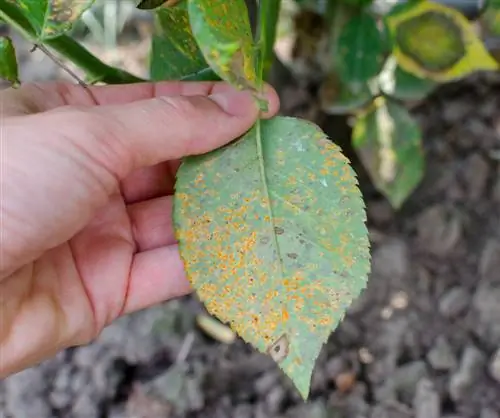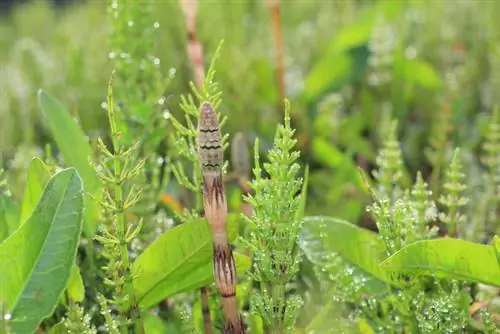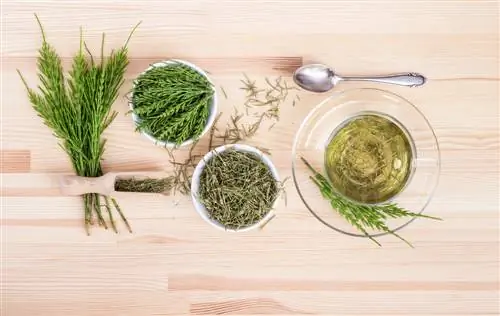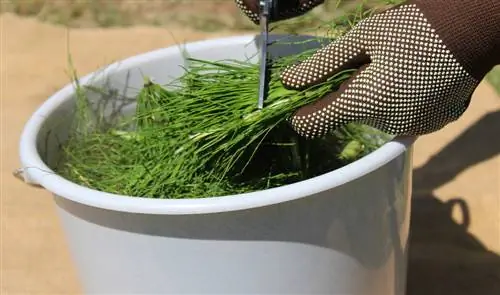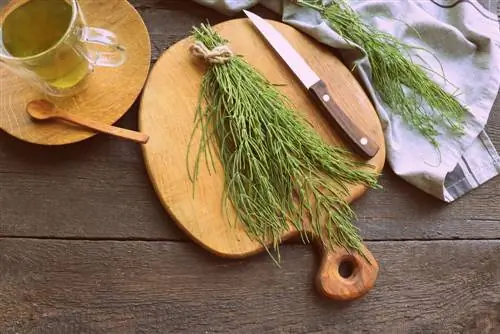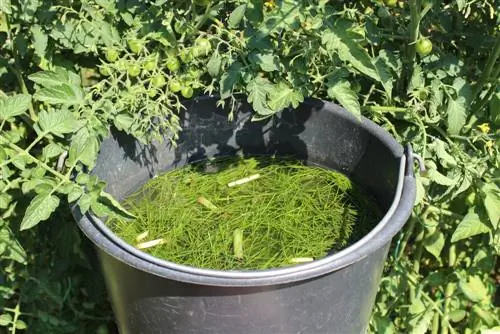- Author admin [email protected].
- Public 2023-12-16 16:46.
- Last modified 2025-01-23 11:22.
Rose rust is a common fungal disease that covers the leaves with unsightly brown-orange spots. Even if the infection is not dangerous, your roses often lose their majestic appearance. You can strengthen your roses and combat rose rust with field horsetail.
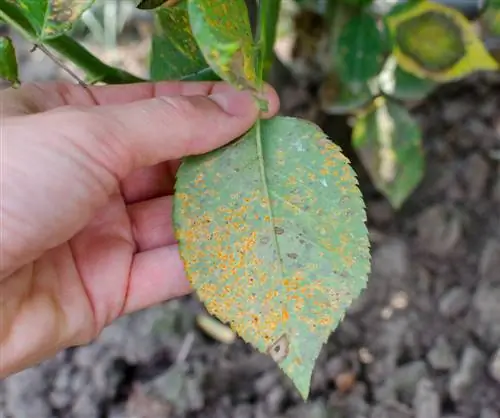
How does field horsetail work against rose rust?
Field horsetail helps against rose rust by strengthening the leaves and making them more resistant to fungi. In the case of acute infestation, field horsetail tea can treat the affected roses, while a manure made from field horsetail is used for prevention.
How does field horsetail help against rose rust?
Field horsetail, colloquially known as horsetail,strengthens the leaves and makes them resistant to fungi and pests. Rose rust, Phragmidium mucronatum, is a fungus that only affects roses. It can be recognized by small, rust-colored dots that first appear on the underside of the leaves. The infection is initially more of a visual problem. If there is a heavy infestation over several years, the plant can also be damaged and will only grow poorly. Thanks to its high content of silica and potassium, field horsetail strengthens the cell walls and the leaf surface.
How do I treat rose rust with field horsetail?
In the case of acute rose rust infestation,Field horsetail tea can strengthen the leaves To do this, make a tea from fresh or dried shoots of the plant according to the instructions. In the event of an acute infestation, first remove the affected leaves and collect fallen leaves. Spray the plant with horsetail tea once a week. Above all, make sure that the undersides of the leaves are moistened, as that is where the spores of the fungi reside.
How can I prevent rose rust with field horsetail?
With amanure made from field horsetail you can preventively protect your roses against rust. This is particularly important for plants that suffered from rose rust the previous year. Rose rust overwinters in the ground and on dead plant parts. First, remove any fallen leaves from underneath the plant to prevent reinfection from occurring when it rains. Make a manure from dried field horsetail as early as March. Once the base is ready, water your roses every two weeks with the diluted manure.
Tip
Mulching against rose rust
The fungus overwinters in the ground and on fallen leaves. Remove leaves regularly. Mulch the soil at least 3 cm thick by March at the latest. This will cover the fungi and spores. In wind and rain these can no longer be blown up and splash against your rose.

